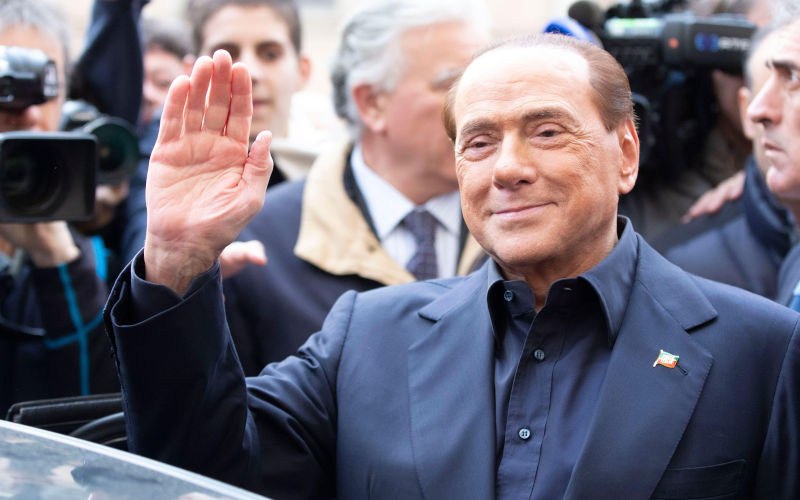Berlusconi’s political journey began ironically in the early 1990s on the tail end of the Italian anti-corruption campaign (known as tangentopoli) which saw the key Italian political parties decimated by accusations and charges of corruption, political control of state assets and a system of spoils for governing elites.
Poking fun at Berlusconi, and indirectly at Italy for tolerating him, may have seemed entertaining for the international and Italian media outlets. Berlusconi, more than most was difficult to slot into a preordained political category. Besides being of centre-right mould, his association with the far right is not something that began with the current right-wing coalition led by Giorgia Meloni. He is what some refer to as being a “populist” who broke every rule in the political handbook. Initially, Berlusconi was dismissed as a crude embodiment of Trumpism (long before Trump) – challenging political etiquette, defying existing rules of the game and simply doing as he wished. Interestingly he was respectful of the Catholic Church but never surrendered to them.
In the early days he was repeatedly written off and ridiculed by the global political elite and the media and seen as some kind of clown. This he was not. Berlusconi walked the fine line of the law often changing it where possible to suit his personal needs and interests, as the frequent changes to the immunity laws demonstrated. Moreover, he attracted sycophants and loyalists alike and expected their personal loyalty. Berlusconi made no secret of his attraction for women and his choice of ministers saw a collection of attractive, young beauties occupy key ministries in his governments. He even heaped sexist ridicule on his opposition noting once that female politicians from the right were “more beautiful than those on the left”! Berlusconi had little humility and he thought he had been given the heavenly role of saving Italy (from the communists). More importantly, and this baffled many abroad, he was popular in parts of Italy more than many other leaders. Part of this was also due to good fortune in the inability of the centre-left or anyone else to challenge him politically.
Berlusconi’s career can be divided into four separate phases. They include the period when Berlusconi made political friends and a fortune (1975–94); the period when he began governing and became embroiled in corruption cases (1994–2008); the period defined by his sleaziness and resignation (2008-2011) and the last period of declining importance (2011-2023). This last phase of his political life saw his party go into decline, evidenced by the junior role his party played in the current right-wing coalition.
One of the lesser-known aspects of the Berlusconi view of the world during his time in government was his strong support for Washington and the US alliance. The Iraq War in 2003, where Italy supported the Bush administration invasion, was undertaken with concern and trepidation. He tried to talk Bush out of invading (unsuccessfully) but was resigned to it eventually. Equally Berlusconi was more at home with close friend Vladimir Putin and had little time for his European colleagues and the European Union. His nazi-jibe exchange with Martin Schultz in the European Parliament in July 2003 said many things in a single act.
Berlusconi’s political decline was a mixture of self-serving legislation, sleazy conduct (bunga bunga) on public display and disinterest in the economic crisis on his doorstep. In late 2011, it all came to a head with Berlusconi oblivious to concerns about rising public debt and his governance paralysis, saw Italy mauled by the finance and bond markets, which ultimately forced his resignation in November 2011. Curiously, it was the very sector that Berlusconi thought he understood – business – that ultimately brought him down.
In 2013 after receiving a four-year sentence for tax fraud, but never spending a day in prison, Berlusconi was banned from holding public office and expelled from the Senate. Despite this he continued to lead his party and in 2018 this ban was lifted.
Within Italy, Berlusconi broke the taboo on governing with the Italian far right and helped set up the ascent of his more reactionary successors. The current far-right prime minister Giorgia Meloni, was first appointed minister in a Berlusconi ministry, is viewed as his true political heir. By the time of his death, Berlusconi’s political influence had dwindled and his party could only muster 8% of the vote in the 2022 elections.
Berlusconi’s death will pose two fundamental and immediate questions. What happens to his party without him and will the votes to his party move across to Brothers of Italy led by Giorgia Meloni?
As Berlusconi was laid to rest in his mansion in Arcore, on the outskirts of Milan and thousands attending his State funeral, some have pondered whether this is the “end of an era”. Given the politics of today, some (like me) who have followed Italian events over the decades might be relieved to see the closure of this chapter but in all likelihood it is not the closure of the phenomenon.

Bruno Mascitelli
Bruno Mascitelli, Adjunct Professor at Swinburne University in International Studies. Has written extensively on the Italian political economy. Prior to entering academia was employed in the Australian Consulate in Milan during the 1980s and 1990s.
